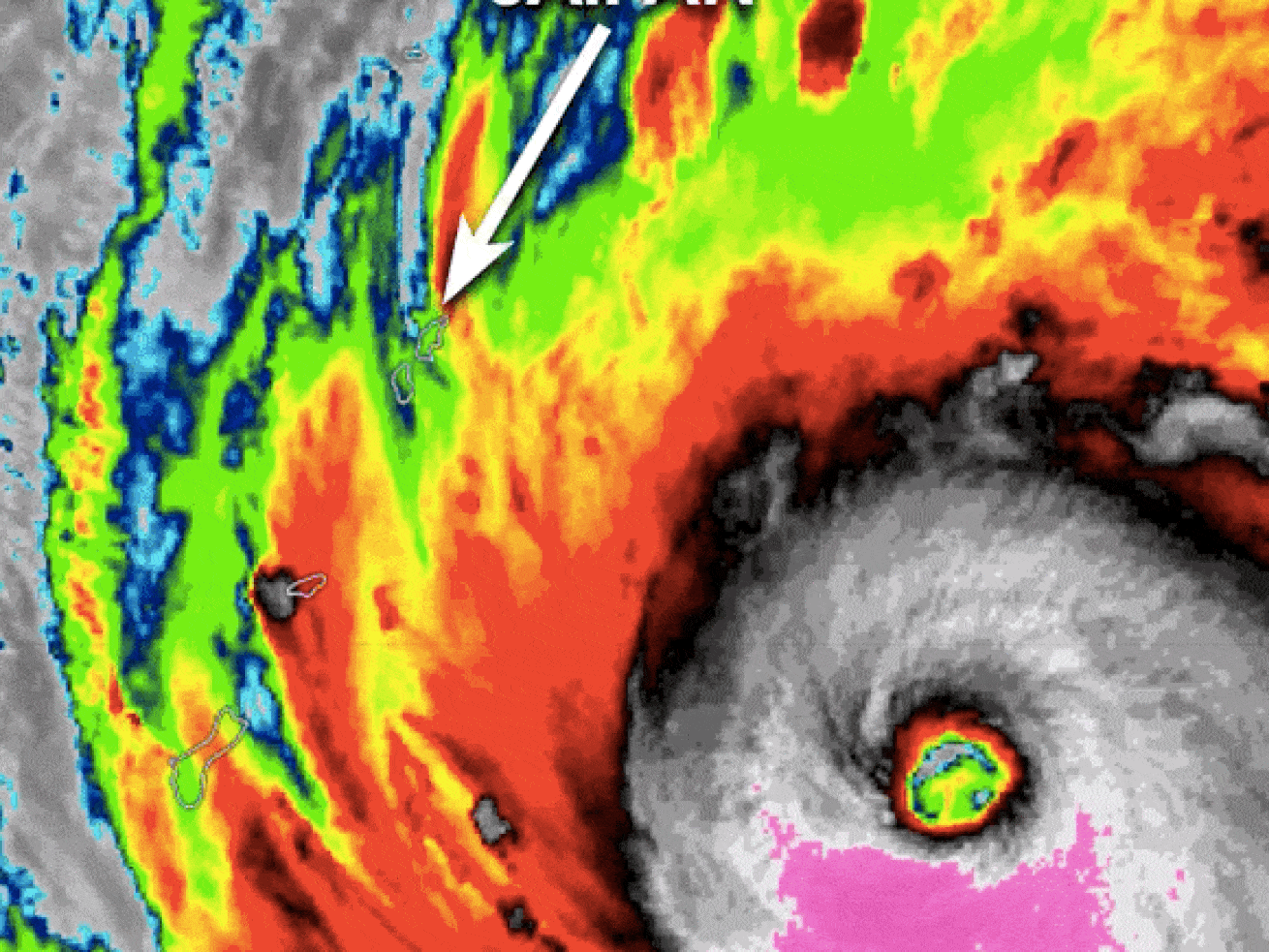Super Typhoon Yutu has 180 mph winds. It just passed over Tinian and Saipan in the Pacific.
Super Typhoon Yutu, an absolute monster of a storm — the strongest on Earth this year — just hit American territories in the Pacific, and forecasters are predicting catastrophic damage.
As it approached the US island territories of Saipan, Tinian, and Rota in the Northern Mariana Islands near Guam Thursday (local time, Wednesday for mainland United States), the typhoon was carrying 180 mph winds. Together, these islands have around 50,000 residents.
Eye of powerful Typhoon #Yutu about to pass over #Tinian Island in the northern Mariana Islands. The JMA (10-minute average) has sustained winds at 132 mph (213 km/h). JTWC (1-minute average) has sustained winds of 178 mph (287 km/h). pic.twitter.com/VN9UoZO7mH
— Jason Nicholls (@jnmet) October 24, 2018
Typhoons are the same exact weather phenomena as hurricanes. They just have a different name.
Yutu is equivalent to an extremely strong Category 5 hurricane (category 5 starts at 157 mph winds). Winds this strong can rip whole homes off their foundation, and cause absolutely catastrophic damage. Typhoon force winds (in excess of 74 mph) extend 85 miles out from its center. It may be better to think of Super Typhoon Yutu as a tornado dozens of miles wide. Tropical storm force winds extend around 240 miles out from the center.
How big is Super Typhoon Yutu? It’s eye has completely engulfed Tinian, one of the Northern Mariana Islands, as it batters the island with winds gusting to 219 (!!) mph pic.twitter.com/xVdqVB81uj
— Brian L Kahn (@blkahn) October 24, 2018
“Devastating damage is expected,” the National Weather Service reports. “Most homes will sustain severe damage with potential for complete roof failure and wall collapse. Most industrial buildings will be destroyed. … Most low-rise apartment buildings will be severely damaged or destroyed. … Numerous windows will be blown out. … Most trees will be snapped or uprooted.”
Electricity could be out for weeks. The Weather Service also notes that a 20-foot storm surge (that’s coastal flooding on top of the normal tide) is possible. The Navy recorded a maximum wave height, cresting at 52 feet.
In short, it’s a dangerous, deadly mess of a storm. The Pacific is known for birthing some of the most intense storms on Earth. But this one still is superlative.
“This is an historically significant event,” Michael Lowry, an atmospheric scientist with FEMA, wrote on Twitter. It could be one of the most intense tropical cyclones ever recorded.
Tinian in the Northern Mariana Islands is taking a direct hit by Super #Typhoon #Yutu. JTWC estimates the max sustained winds are now at 155 KTS (178 MPH) with gusts to a staggering 190 KTS (219 MPH)! (JMA Himawari imagery) pic.twitter.com/qf6SpLx9S9
— NASA SPoRT (@NASA_SPoRT) October 24, 2018
Author: Brian Resnick



